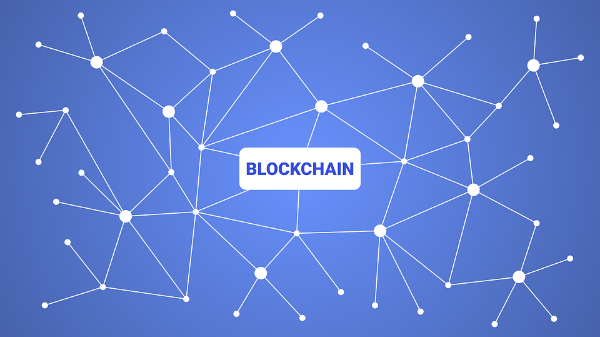This Business of Predicting: EdTech in 2019
 As the year comes to an end, you see many end-of-year summary articles and also a glut of predictions for the upcoming year. I'm not in the business of predicting what will happen in education and technology, but I do read those predictions - with several grains of salt.
As the year comes to an end, you see many end-of-year summary articles and also a glut of predictions for the upcoming year. I'm not in the business of predicting what will happen in education and technology, but I do read those predictions - with several grains of salt.
“A good science fiction story should be able to predict not the automobile but the traffic jam.” wrote sci-fi author Frederik Pohl.
Many of the education and technology predictions I see predict things rather than the impact those things will have. Here are some that I am seeing repeated, so that you don't have to read them all, but can still have an informed conversation at the holiday party at work or that first department meeting in January.
If you look at what the folks at higheredexperts.com are planning for 2019 just in the area of higher ed analytics.
Is "augmented analytics" coming to your school? This uses machine learning (a form of artificial intelligence) to augment how we develop, consume and share data.
And IT analyst firm Gartner is known for their top trends reports. For 2019, one that made the list is "immersive user experience." This concept concerns what happens when human capabilities mix with augmented and virtual realities. Looking at the impact of how that changes the ways we perceive the real and digital world is what interests me.
We are still at the early stages of using this outside schools (which are almost always behind the world in general). You can point to devices like the Amazon Alexa being used in homes to turn on music, lights, appliances or tell us a joke, This is entry-level usage. But vocal interaction is an important change. A few years ago it was touch screen interactions. A few decades before it was the mouse and before that the keyboard. A Gartner video points at companies using remote assistance for applications such as an engineer working with someone in a remote factory to get a piece of equipment back online.
Will faculty be able to do augmented analytics using an immersive user experience? Imagine you can talk to the LMS you use to teach your course and you can ask, using a natural language interface, and ask " Which students in this new semester are most likely to have problems with writing assignments?" The system scans the appropriate data sets, examines different what-if scenarios and generates insights. Yes, predictive analytics is already here, but it will be changing.
But are IT trends also educational technology trends? There is some crossover.
Perhaps, a more important trend to watch for as educators for next year is changing our thinking from individual devices (and the already too many user interfaces we encounter) to a multimodal and multichannel experience.
Multimodal connects us to many of the edge devices around them. It is your phone, your car, your appliances, your watch, the thermostat, your video doorbell, the gate in a parking lot and devices you encounter at work or in stores.
Multichannel mixes your human senses with computer senses. This is when both are monitoring things in your environment that you already recognize, like heat and humidity, but also things we don't sense like Bluetooth, RF or radar. This ambient experience means the environment will become the computer.
One broad category is "autonomous things" some of are around us and using AI. There are autonomous vehicles. You hear a lot about autonomous cars and truck, but you may be more likely to encounter an autonomous drones. Will learning become autonomous? That won't be happening in 2019.
AI-driven development is its own trend. Automated testing tools and model generation is here and AI-driven automated code generation is coming.
Of course, there is more - from things I have never heard of (digital twins) to things that I keep hearing are coming (edge computing) and things that have come and seem to already have mixed reviews (blockchain).
EducationDive.com has its own four edtech predictions for colleges:
Digital credentials gain credibility - I hope that's true, but I don't see that happening in 2019.
Data governance grows - that should be true if their survey has accurately found that 35% of responding institutions said they don't even have a data governance policy - a common set of rules for collecting, accessing and managing data.
Finding the ROI for AI and VR may be what is necessary to overcome the cost barrier to full-scale implementation of virtual and augmented reality. AI has made more inroads in education than VR. An example is Georgia State University's Pounce chatbot.
Their fourth prediction is institutions learning how to use the blockchain. The potential is definitely there, but implementation is challenging.
Predictions. I wrote elsewhere about Isaac Newton's 1704 prediction of the end of the world. He's not the first or last to predict the end. Most have been proven wrong. Newton - certainly a well respected scientist - set the end at or after 2060 - but not before that. So we have at least 41 years to go.
Using some strange mathematical calculations and the Bible's Book of Revelation, this mathematician, astronomer, physicist came to believe that his really important work would be deciphering ancient scriptures.
I'm predicting that Newton was wrong on this prediction. He shouldn't feel to bad though because I guesstimate that the majority of predictions are wrong. But just in case you believe Isaac, you can visualize the end in this document from 1486.
 Blockchain is sometimes described as a secure public ledger. I
Blockchain is sometimes described as a secure public ledger. I  I mentioned the Gig Economy to a colleague at a college last week and he said he had never heard of the term. I said that "gig" is a term I associate with musicians who move from job to job, gig to gig. Now, it is being applied to a labor market characterized by the prevalence of short-term contracts or freelance work as opposed to permanent jobs. "But it has nothing to do with education," he commented. That got me thinking. Is it affecting education?
I mentioned the Gig Economy to a colleague at a college last week and he said he had never heard of the term. I said that "gig" is a term I associate with musicians who move from job to job, gig to gig. Now, it is being applied to a labor market characterized by the prevalence of short-term contracts or freelance work as opposed to permanent jobs. "But it has nothing to do with education," he commented. That got me thinking. Is it affecting education?